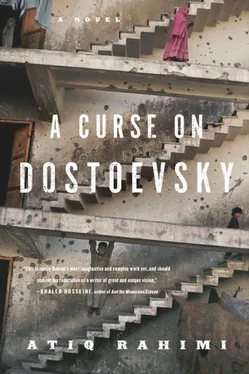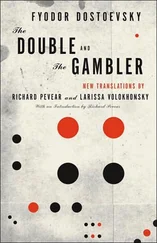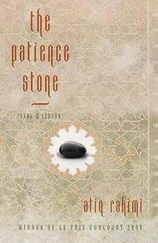So, perhaps the stroke of the ax was not fatal. She escaped alive. She must be in the hospital by now. She can’t be conscious yet, or I would be behind bars.
He is sweating, the sweat of fear. He must leave this place, return to Sophia’s house and wait for her there. But his legs are heavy, bogged down in the ground, as if they want him to stay here and settle this.
Yes, it must be settled.
Sooner or later, Nana Alia will tell.
Sooner or later, you will pay.
So why not today, right here and now, at the scene of the crime?
He walks up to the half-open gate, pushes it gently, and peers into the courtyard. The house is completely calm and quiet. Just a few hens pecking and clucking. He walks up to the house and to the terrace steps. The air is heavy, the silence dense, his footsteps uncertain. He stops to peek through the windows. Not a soul behind the curtains. He is trembling with curiosity and fear. Sweat hangs on his forehead, and he has to hold on to the wall to make it up the steps. On reaching the terrace he jumps—a silhouette has appeared, finally, in the darkness of the corridor. “Rassoul? Is that you?” asks Sophia’s voice. Rassoul panics and tries to speak, forgetting his muteness; his lips move in vain to explain that he has come to find her, that her mother is very worried. It makes Sophia laugh. “What’s the matter with you? I couldn’t hear a word,” she says, moving closer. Rassoul freezes as he sees another silhouette emerge from the corridor behind Sophia. It is Nazigol.
“Nana Alia disappeared yesterday. No one knows where she is…” exclaims Sophia.
Rassoul stares at Nazigol, not knowing what to do, or think, or say. Nana Alia is no longer here. That’s the only thing they know. How should he receive this news? Should he be glad? Or suspicious?
Nazigol takes a step closer. “When I came yesterday evening, no one was in. My mother never goes out without leaving someone here, especially in the evening.” Rassoul stares at the two girls, increasingly stunned and increasingly secretive.
Nazigol turns to Sophia. “When I found the house empty, I was afraid to stay here alone. I closed all the doors and left…” Her voice tapers off. All sound fades. Rassoul can no longer hear anything, or see anything. There is just a hole, a black hole, the corridor, silent and morbid, a deep, endless abyss with no way out.
He staggers dumbly into the house, and Nana Alia’s fat body appears on the stairs at the end of the corridor. He says hello. She asks him what he wants. The smoke from her cigarette, caught in a ray of light, obscures her face. Rassoul walks along the passage and holds out a watch that he promised her the other day. She says she has no more money to pawn it. He begs her, swearing that he will only leave it for a day or two. It is a precious watch, full of jewel bearings. He bought it in Leningrad. He only wants two thousand afghanis. Nana Alia takes a step back, suspicious. She can’t understand why Rassoul is wearing a patou in this heat. She asks him. He says that he is ill, feverish. She takes the watch and looks at it. The hands say nine minutes past six—it doesn’t work.
It does normally work, but the battery has died. Rassoul would have replaced it if he had the cash.
Nonsense! This is an old wind-up watch. It doesn’t use batteries! She tries to give it back. He won’t take it. He begs her again, just two thousand afghanis. The watch contains twelve precious jewels. Look—it says so on the back.
No, she doesn’t want it. Rassoul insists. The watch is Russian, an excellent brand. She can give him whatever she wants, damn it! But the old lady is increasingly suspicious of Rassoul, who is now trembling. He grabs her hand and puts it to his forehead so she can feel how feverish and exhausted he is. He hasn’t eaten for two days. She pulls back her hand, hesitates, then agrees to take the watch but on one condition: that he lets his fiancée return to work; otherwise, she will retrieve her money the very next day, and what’s more she will kick out his fiancée and her whole family. Rassoul agrees. As soon as he leaves here, he’ll go to Sophia and ask her to return to work.
The old lady is about to go, but turns back to tell Rassoul something: from now on it will be she, and she alone, who decides what time Sophia leaves work. He nods.
Then she instructs him to wait in the passage, and heads for the stairs. As soon as she’s upstairs Rassoul is on the move—stealthy, anxious and upset. The ax he has hidden beneath his patou is becoming more and more burdensome; his arms, weak; his legs, stiff. He struggles to climb the stairs, to reach the upstairs corridor where he sees Nana Alia opening a little door. After a short hesitation she enters the room and closes the door behind her. Rassoul staggers up to the door. He puts an ear to it and listens to the sound of cupboards being opened and shut. He takes a deep breath, kicks down the door and rushes at Nana Alia, who is counting a wad of notes by the window. The moment Rassoul lifts the ax to bring it down on the old woman’s head, the thought of Crime and Punishment flashes into his mind. It strikes him to the very core. His arms shake; his legs tremble. And the ax slips from his hands. It splits open the old woman’s head, and sinks into her skull. She collapses without a sound on the red and black rug. Her apple-blossom-patterned headscarf floats in the air, before landing on her large, flabby body. She convulses. Another breath; perhaps two. Her staring eyes fix on Rassoul standing in the middle of the room, not breathing, whiter than a corpse. His patou falls from his bony shoulders. His terrified gaze is lost in the pool of blood, blood that streams from the old woman’s skull, merges with the red of the rug, obscuring its black pattern, then trickles toward the woman’s fleshy hand, which still grips a wad of notes. The money will be bloodstained.
Move, Rassoul, move!
“RASSOUL?”
He returns to his senses and turns, panic-stricken, toward the voice. Sophia and Nazigol are standing in the doorway, looking at him in shock. “What’s happening to you, Rassoul?” asks Sophia, taking a step toward him. He paces the room, distraught, peering anxiously into every nook and cranny. No trace of his crime.
“Have you been in this room before?” asks Nazigol curiously. “My mother always used to lock it. No one apart from me and her were ever allowed to set foot in here.” She turns toward Sophia. “When did you last clean this room?”
“Never. She always cleaned it herself.”
Rassoul looks at the window he used to escape. It is closed. He is so shaken that he almost faints. Water! He turns toward Sophia, miming drink. “Yes, wait!” she says, murmuring to Nazigol as she runs out the door, “he’s very unwell just now.”
Rassoul stares at Nana Alia’s daughter as she rummages through the cupboards. More and more curious, she wonders aloud: “Could she have taken all her jewelry with her?” Then she leaves the room to look next door. Sophia comes back with a glass of water and gives it to Rassoul. He drinks. Slowly, not so much for the refreshment as to give himself time to think before Nazigol returns.
How to explain or justify entering the room?
If you could, you’d say that a long time ago, when Nazigol’s father was still alive—for this must have been his room—you’d brought him documents from the National Archives belonging to Sophia’s father, etc.
Come back, blasted voice!
“Surely she didn’t take all her money with her?” wonders Nazigol, looking suspiciously at Rassoul and Sophia. After a moment’s heavy silence, Rassoul rushes into the corridor, followed by Sophia. “What’s the matter, Rassoul?” Nothing… nothing! He waves his hands about as he runs down the stairs. “What’s happening to you? Are you OK? You seem so strange,” she insists. He stops dead, thinking how to make her understand that he has no voice to tell her what’s going on. But Nazigol is following them, she’s there, behind Sophia, asking them: “What should I do? Where should I go? I don’t know if my mother will come back this evening or not.”
Читать дальше












